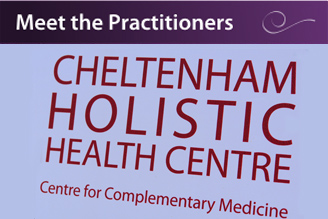Make Mindfulness your New Year’s Resolution for Mental Health
David Behrens is offering a new mindfulness meditation 4 week course starting in Mid January 2015 with CD and worksheets. Please call Cheltenham Holistic Health Centre or email info@chhc.co.uk to leave you details to register interest in this course.
Mindfulness
New Years is a traditional to time to start anew and begin again.
Life always gives us an opportunity to move forward and create what we wish for.
If you found challenges in 2014 with stress, anxiety, mood swings or just low energy.
2015 can be your New Year to rebuild . We all understand the value of exercise for the body and good diet for greater Health but often we forget about taking care of our own Mind.
Mindfulness Meditation is an effective way to take care of our Mind.
Did you know the word – Meditation: is derived from two Latin words: “meditari” – to think, to dwell upon, or to exercise the mind, and “mederi” – to heal. Meditation is a way to focus and exercise the mind to heal itself.
In 2014 as a Mindfulness Meditation teacher for the NHS recovery colleges in Gloucestershire I have watched how Mindfulness has been a great support for those dealing with the Mental Health Challenges. Each participant gained greater resilience and ways to experience the best in life.
When we are faced with mental health challenges such as anxiety, panic attacks, phobias, depression or just low mental energy. Mindfulness gives us the ability to step out of the deep patterns of our minds. We become more awake and able to make the best choices in our life.
In 2015 at CHHC we will be offering regular 4 week courses Mindfulness Meditation Courses based upon the international (MBCT) mindfulness-based cognitive therapy model.
Offered by David Behrens regular course tutor for Mindfulness Courses at the NHS funded recovery college for Mental Health in Gloucestershire.
Call for more information at CHHC 01242 584140.
More information see excerpt from the article at – http://www.mentalhealth.org.uk/help-information/mental-health-a-z/M/mindfulness/
Mindfulness is a mind-body based approach that helps people change the way they think and feel about their experiences, especially stressful experiences.
Mindfulness exercises or mindfulness-based cognitive therapy (MBCT) are ways of paying attention to the present moment, using techniques like meditation, breathing and yoga. Mindfulness training helps us become more aware of our thoughts and feelings so that instead of being overwhelmed by them, we’re better able to manage them.
It’s been known for millennia that the way we think and the way we handle how we feel plays a big part in mental health. Taking a mindfulness course can give people more insight into their emotions, boost their attention and concentration and improve relationships.
MBCT is recommended by the National Institute for Clinical Excellence (NICE) for the prevention of relapse in recurrent depression. It combines mindfulness techniques like meditation, breathing exercises and stretching with elements from cognitive behaviour therapy (CBT) to help break the negative thought patterns that are characteristic of recurrent depression. Mindfulness is a potentially life-changing way to alter our feelings in positive ways, and an ever-expanding body of evidence shows that it really works.
Evidence
Mindfulness meditation has been shown to affect how the brain works and even its structure. People undertaking mindfulness training have shown increased activity in the area of the brain associated with positive emotion – the pre-frontal cortex – which is generally less active in people who are depressed.
More than 100 studies have shown changes in brain wave activity during meditation and researchers have found that areas of the brain linked to emotional regulation are larger in people who have meditated regularly for five years.
Research shows that Mindfulness can help with:
· recurrent depression
· anxiety disorders
· addictive behaviour
· stress
· chronic pain
· chronic fatigue syndrome
· insomnia
· plus more mental and physical problems.
There is growing evidence that Mindfulness in the workplace can improve productivity and decrease sickness absence, and increasingly employers are looking to benefit from its effect on workplace wellbeing. Find out more at Mindfulnet.
Almost three-quarters of GPs think mindfulness meditation would be helpful for people with mental health problems, and a third already refer patients to MBCT on a regular basis.
(Source: ICM survey June 2009 of 250 GPs). With the increase in talking therapies being instigated across the UK this is something that you can raise and discuss with your GP.
If you’d like more information about David Behrens and his Mindfulness classes, please see his website: http://realcurehomeopathy.com/mindfulness-meditation/








